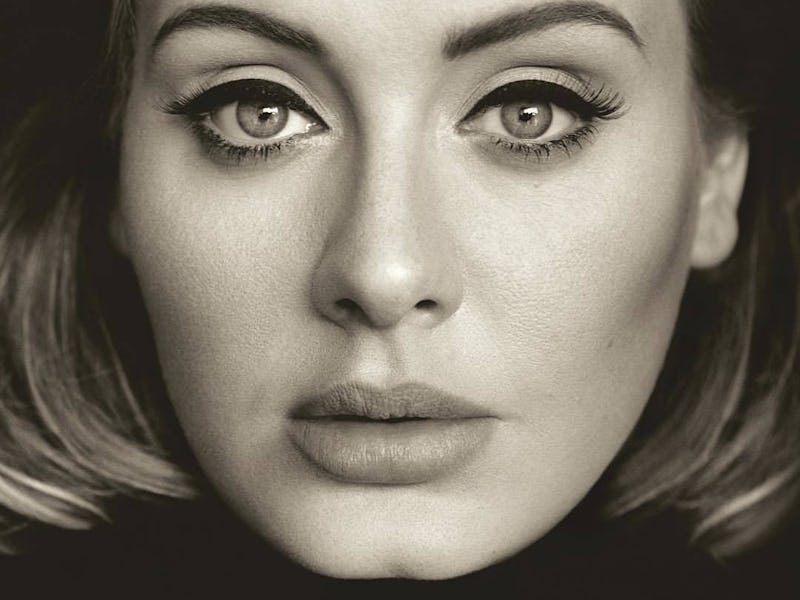Adele's 'Hello': a Sleek, Flawless Update of an Old Business Model
The singer's comeback single is about to break sales records. How does Adele do it?

Where does the power of Adele come from? It’s been much debated, and her songs play out to the point of seeming like a natural part of the fabric of day-to-day existence. Against all odds — in an era when people do not buy records — Adele’s second album 21 became one of the top 100-selling albums in the United States, after selling well over 10 million copies in 2010 and 2011. A long rollout — and the gradual crossover success from her 2008 debut 19 from the British market — poised her for this takeover.
Four years after their peak popularity, 21’s singles remain ubiquitous. In 2012, TIME had already deemed her one of the most influential people in the world. It’s definitely one of the most remarkable career trajectories of the past decade.
What is it about Adele? For conservatives, perhaps, the sheer power of her voice — warm, throaty, and piercingly bright at once — has come to embody the “talent” they see missing from other current pop music. With or without the politicizing, her instrument is certainly unique, possessing a quality which has allowed it to resonate on the widest possible scale. It’s not only Adele’s clearly unusual range and adeptness — which lies so much on the surface — but also her ability to shape-shift, providing distinct favorite moments for every listener. She has an ability to color every phrase a bit differently while still sounding like the same person.
The songs themselves are also amazing, though invariably, they sound distinctly familiar — in a certain light, even garden-variety. They are built over chord progressions you’ve heard a million times, presenting affairs-of-the-heart stories you’ve heard twice as many with a hyper-dramatic intimacy, as if they are brand new information. Unlike most pop stars who function more in the Madonna mild of amalgamating dissonant styles and structures in unusual ways to stay a step ahead of the zeitgeist, Adele aims for consistency and streamlined purpose. Some might call the effortlessly inviting quality of her songs timeless, but they could just as easily could be seen as a miracle of uniting threads from many different pop music sensibilities — from Sarah Vaughan to Etta James to Dido — into neat forms: ones that only the right voice can mold and ennoble.
The unique power of Adele’s music comes so much from her sense of dynamics, and the extent to which her producers pare back the arrangements to allow her to realize them. Her best music makes small changes of tone and volume into huge events. After being lightly finessed with soaring reverb and limited pitch correction and compression, Adele’s voice comes to possess both an in-the-room-with-her organicism and a mythical quality.
In “Hello,” a record which (like her runaway #1 “Someone Like You”) is mostly just block chords on a piano and her voice, you can hear the dense reverb sheen and a few notes that have been treated into perfect smoothness: “Can ya hear me,” “a mill-ioon miles,” “a thousand tiiiiimes” and so on. It’s a voice both real and unreal, coming from on top of a mountain. “Hello” makes 2011’s piano ballad and #1 single “Someone Like You” sound raw in comparison, with its glottal gasps when she hits the high range (“Don’t forget me/Oh babe”) or its lightly growled “sometimes it hurrrts instead.” If you listen to “Hello,” there is an aerated and meticulous quality to every sound you hear, handpicked and finessed skillfully. There’s no margin of error.
Adele is not a paragon of authenticity; she is a perfect simulacrum of it. She elevates intimacy and penetrating emotion to the level of ultimate symbolism and irreducible, on-paper perfection. Her strengths have, by now, been pinpointed, and the streamlined sonics of “Hello” — lightly cracked but overwhelmingly smooth — evidence how carefully Adele-ness (by now, its own business model) has been ensured here, and bolstered lightly.
Only Adele, with both her track record and gift for phrasing, could sell a modest ballad like “Hello” — like Lionel Richie’s song of the same name, a mournful piano dirge into which a lush electro-orchestral backdrop insinuates itself gradually for ultimate dramatic effect — as a lead-off smash single. Sure, Sam Smith milked his breakthrough single and torch song “Stay With Me” to the top across five months last year, but Adele is about to break digital sales records in one weekend. “Hello” is both a project of apparent private contemplation and expression, and Adele entering back into the pop music conversation in a way she knows only she can.